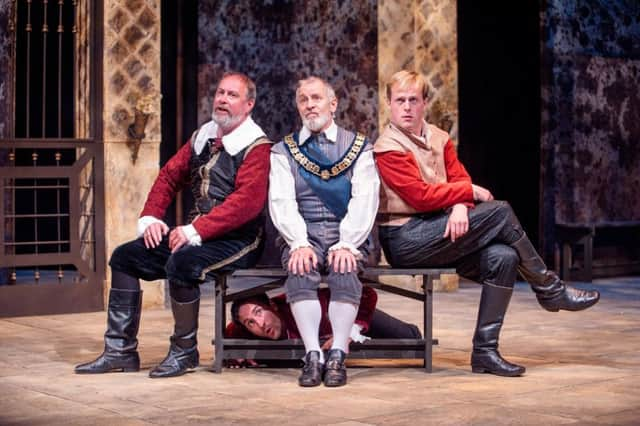Theatre review: Much Ado About Nothing, Dundee Rep


Much Ado About Nothing | Rating: **** | Dundee Rep
If it ever occurred to you, though, that such incidents do still happen, then that’s all the more reason to marvel at the force of Shakespeare’s dramatic imagination.
More than than 400 years ago he saw clearly how men would turn with ferocity against women – even their own daughters or wives – if they no longer appeared to the world as obedient and well-behaved assets.
Advertisement
Hide AdNowhere does he dramatise that truth more vividly than in the pivotal scene of Much Ado About Nothing, when the heroine Beatrice’s beautiful young cousin Hero goes to church to marry her love, Claudio, only to be publicly condemned as a whore by Claudio and his great patron the Duke – although Claudio has simply been tricked by the Duke’s evil brother, who wishes to destroy his happiness.
What makes Much Ado a comedy rather than a tragedy, though, is the parallel presence of older lovers Beatrice and Benedick, who, after years of mutual sparring, have just finally acknowledged their love.
In Irene Macdougall’s handsome new production at Dundee – with a fine, mood-shifting courtyard set by Ken Harrison – the grown-up merriment and passion of their well matched relationship is captured with impressive energy and wisdom by Emily Winter and Robert Jack. They make us feel the full significance of what Benedick does for Beatrice, as he sides with the outraged women against the closed ranks of his own sex.
If the production has a fault, it’s perhaps that it tries a little too hard to make the comedy funny; Beatrice and Benedick’s reluctant wooing is beautifully written and hilarious in itself, and there’s no need to make Benedick leap around like a frenzied buffoon.
The production makes an unusual success of the crucial comic sub-plot involving Dogberry’s night watchmen, though, winning applause for Antony Strachan, Ann Louise Ross and Stephen Bangs.
In the end, it both delights the audience, and succeeds in making us feel the bold ambivalence of a great, many-layered comedy that flirts darkly with death, but also offers a rare vision of true love between a strong, articulate and witty woman, and a man who is, just possibly, the first male feminist hero in western literature.
• Dundee Rep until 25 June.